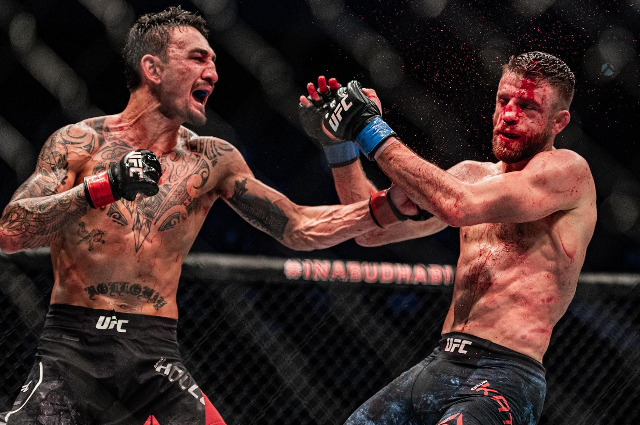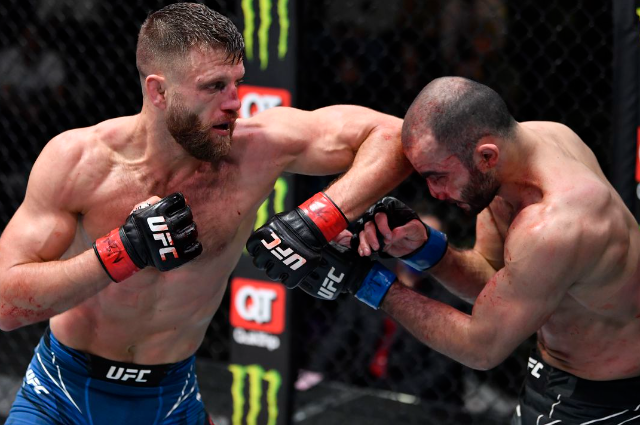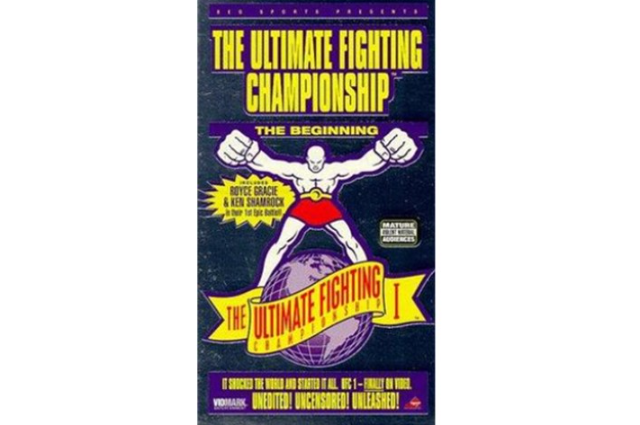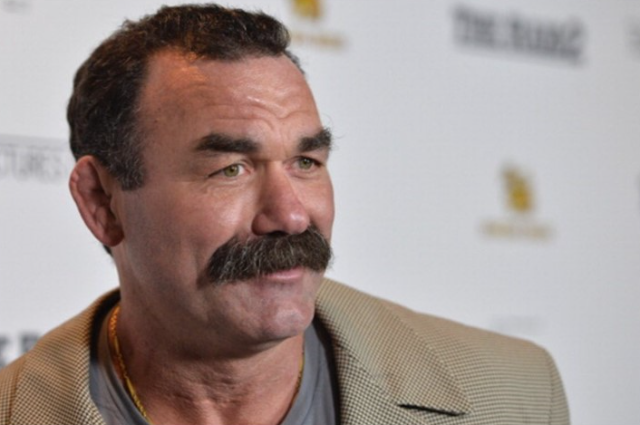
It was January 17, 2021, the night of former UFC featherweight champion Max Holloway delivering possibly the greatest performance of his career and one of the best recorded in featherweight history. On the other side of this glorious story, was a rather unlucky fighter who lost to Holloway, an exciting, up and coming contender named Calvin Kattar. That night, Kattar was on the receiving end of getting 744 significant strikes from Holloway and on the judges' scorecard, this was one of the most lopsided fights in UFC history. Holloway won all 5 rounds with scores 50-42 in his favour. It took Kattar an entire year to recover and come back, only for more fighting. Fortunately for him, Kattar put on an amazing performance of versatile striking in his return against Giga Chikadze on January 16, 2022, and the Boston fans couldn't be any happier for their hometown representative at the UFC (Ultimate Fighting Championship).
But now the question is, how did Kattar sustain himself throughout the remaining 2021? But first of all, we shall answer to what was Kattar doing throughout the year and it's rather simple. He took his time to recover from the Holloway fight, he figured out his way with his coach and manager Tyson Chartier to a potential next opponent and went on to prepare for his fight against which was against Chikadze with ample amount of time on his hands. Kattar dealt with the aftermath of his defeat rather smartly as every fighter should do after being on the receiving end of such domination in a fight by Holloway.
As a staunch student of this sport, Kattar also picked on some things to learn from his defeat which is quite impressive. But, what were the alternatives for Kattar to keep on earning for the rest of the year? I don't know!

Actually, one can have an idea that having been paid out $310,000 for the Holloway fight, Kattar might not have faced much of a problem, adding with it the sponsors that fighters get independently outside of the UFC. But none of them points to the fact that Kattar was never asked if it was enough for him to give a break on his job for a year, and so we never heard it from Kattar either.
Also, the thing is, we are here talking about a full-time fighter being able to take an off because let's just face that $310,000 is not a small amount, you can live off this money lavishly for at least 6 months if you want to be a spendthrift. But not all the fighters get the same amount of share as Kattar. Kattar is a potential brand of an athlete who has delivered such amazing knockout performances that he clearly shows traces of pulling off a huge upset and becoming a champion in the future, hence it's worth UFC's money to give him such amount for a night for his fight because he rightfully deserves it.
Now imagine a name that has only fought twice in the UFC and delivers performance on the other athlete of the same experience as him just like Holloway put on Kattar. The thing is, these fights often go unnoticed because of their names being in the rookie list of the UFC and therefore the stakes being not as high as Holloway vs Kattar. Now imagine if one of them has to take a layoff as long as Kattar did, how would you make a case for that fighter that he will be able to live well off for a year with the UFC money given to him when it's definitely going to be less than $100,000 for sure. Don't count the sponsors outside the company because this fighter isn't personally branded enough to get them. How would he be able to rest, recover, and train for the fight while using that money to sustain his family at the same time?
My point:
Blame the UFC? Well, not so early...
The UFC is just a profit-earning company that runs a fight business and therefore, it does what it can do for the benefit of its athletes but it cannot be done at the cost of the entire company. This is because the sport of MMA couldn't be anywhere close to where it is today had the company didn't run the way it did. The UFC Performance Institute provides free nutritional support, training gear, and medical assistance to all the fighters signed with the company. Also, it pays to the Athletic Commission to keep the sport clean and so that no fighter can be caught using illegal substances for performance enhancement and therefore in some way, the damage a human can impose on the other human in a combat sport like mixed martial arts doesn't cross the natural limits. Over this, the UFC pays the fan-favourite fighters, the dues for being fan-favourite, but they cannot go on putting heavy bet of big salaries on every other athlete.
So why we're talking about whatever we are talking about?

My only reason to raise this instance of fighters like Kattar and another rookie of the same fate as him is that these fighters don't go big because the company pushes them or not only get the big fights because the company wants to see them fight. These fighters become household names, get the fights that are exciting and get increment in their pay primarily and most importantly because we, the fans of this sport proudly known as mixed martial arts (MMA) which means an amalgamation of multiple martial arts with centuries of history, want these fighters called mixed martial artists to go big, challenge themselves to their utmost potential, be known to your friends and families so that you can proudly point out and say that this is my favourite fighter to watch every time the UFC puts on an event with him/her in it and finally, so these fighters can have their own merchandise which you can buy as a souvenir of you following this person around the time when he was active in this sport through which they get a new income opportunity as well.

When this sport started 30 years ago, we - the fans- were just enjoying the fighters getting beat the hell out every other night and there would be no more than a day, or in some cases a few hours gap for a fighter to return no matter the gruesome amount of damage he took in his last fight, this is because the fans of the fight game then used to fickle their attention towards the new name much faster than you could realise and on top of that there was literally no pay in this sport. Some of these fighters who are often unsung heroes of this sport today used to be involved in the most brutal competitions on a back to back basis as if you're watching professional wrestling with the same wrestler every week just to be badass, but in this situation, it's not scripted and the fights can go as bloody as both the fighters wish upon the each other. One of these legends of MMA was Don Frye, who competed in mixed-martial arts to such an intense level that after his retirement he had to insert titanium rods in place of his 2 vertebral bones, which led to another surgery because the rods broke inside his body and sort of started stabbing him from the inside!
The fighters are just humans, so the generation today lives a much better life than the generation before and the generation coming after this will live an even better life financially and materialistically as long as the human race keeps on living to achieve euphoria. But in the end, it's also up to the fans to realise they have a duty in loyalty served to understand that these fighters won't be continuously knocking themselves into their opponents' fists just because you deserve more entertainment than your father and forefathers. I started off with the case of Calvin Kattar because people thought that it was futile to count on Kattar against another up-and-coming contender in Giga Chikadze because he was considered to be "not same anymore" after the Max Holloway fight. This impacts a fighter's image and his brand and you can hurt his income as much as his opponent who wins against him. It's time we reflect on our passion as being a fan of this sport and start giving a break to these fighters for their setbacks, a second chance on their failures, and more importantly, some space on their progress because at the end. Let's not fickle our loyalty away from them because, in the end, these fighters are just humans, like you and me.
